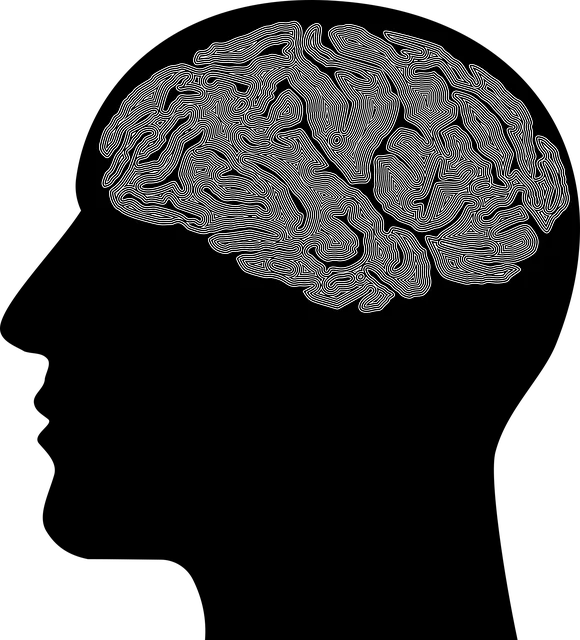Kaiser Permanente's Superior Mental Wellness Coaching Programs equip individuals with vital coping skills for navigating life challenges and maintaining mental wellness. Through evidence-based practices like Compassion Cultivation, mindfulness, cognitive behavioral therapy, and social skills training, these programs empower folks to manage stress, regulate emotions, make healthier choices, and improve their quality of life. By integrating practical strategies into daily routines, participants gain enhanced emotional intelligence and resilience, thriving in personal and professional environments.
In today’s fast-paced world, coping skills development is crucial for maintaining mental wellness. This article explores the significance of effective coping strategies, focusing on their role in mitigating stress and promoting resilience. We delve into how Kaiser Permanente training programs excel at empowering individuals with robust coping mechanisms. By examining key components of these superior training initiatives, we uncover practical ways to integrate healthy coping methods into daily life, fostering overall well-being.
- Understanding Coping Skills and Their Significance
- The Role of Kaiser Permanente Training Programs in Developing Coping Strategies
- Key Components of Effective Coping Skills Training
- Implementing and Maintaining Healthy Coping Mechanisms in Daily Life
Understanding Coping Skills and Their Significance

Coping skills are essential tools for navigating life’s challenges and maintaining mental wellness. They enable individuals to manage stress, overcome adversity, and foster resilience in various situations. According to Kaiser Permanente training programs, effective coping strategies can significantly enhance overall well-being. The Mental Wellness Podcast Series often highlights the importance of understanding one’s unique coping mechanisms and how they can be cultivated and enhanced through practices like Compassion Cultivation.
These skills are particularly valuable in today’s fast-paced world, where individuals face numerous stressors and demands. By learning and developing coping strategies, people can better regulate their emotions, make healthier choices, and improve their quality of life. The Superior Mental Wellness Coaching Programs offer a structured approach to teaching these skills, empowering individuals to lead more balanced and fulfilling lives.
The Role of Kaiser Permanente Training Programs in Developing Coping Strategies

Kaiser Permanente training programs play a pivotal role in equipping individuals with effective coping skills and strategies. These superior initiatives focus on holistic development, addressing not just mental health but also physical well-being. Through interactive workshops and educational sessions, participants gain valuable insights into managing stress, anxiety, and other challenges. The programs emphasize evidence-based practices, incorporating techniques such as mindfulness, relaxation exercises, and cognitive behavioral therapy to foster resilience.
In addition to enhancing self-care practices, Kaiser Permanente’s training empowers individuals with improved communication strategies and social skills. These essential tools enable people to navigate interpersonal relationships more effectively, seek support from peers and loved ones, and advocate for their mental health needs. By combining comprehensive learning with practical application, these programs ensure that participants can integrate newfound coping mechanisms into their daily lives, promoting overall mental fortitude and well-being.
Key Components of Effective Coping Skills Training

Effective coping skills training involves a multi-faceted approach that addresses both individual and social components. Kaiser Permanente training programs excel by incorporating key elements such as mindfulness meditation, self-awareness exercises, and social skills training. These activities empower individuals to manage stress, regulate emotions, and build resilient responses to challenging situations.
Superior coping skills development is not just about understanding one’s feelings; it also involves learning practical strategies for navigating through them. By integrating these techniques into daily routines, participants gain enhanced emotional intelligence, improved communication skills, and a stronger ability to cope with life’s complexities. This holistic approach ensures that individuals are equipped to thrive in various environments, both personally and professionally.
Implementing and Maintaining Healthy Coping Mechanisms in Daily Life

Implementing and maintaining healthy coping mechanisms is a vital aspect of personal growth and well-being. Kaiser Permanente training programs offer comprehensive guidance on developing robust coping strategies, which are essential in managing stress and promoting mental wellness. These programs encourage individuals to embrace various techniques such as mindfulness, exercise, and social connection, all of which play a significant role in enhancing resilience and overall health. By integrating these practices into daily routines, people can effectively navigate life’s challenges.
In the fast-paced world we live in, it’s easy to overlook self-care. Public Awareness Campaigns and Mental Wellness Podcast Series Production initiatives have been instrumental in shedding light on the importance of self-preservation. Additionally, burnout prevention strategies for healthcare providers emphasize the need for sustainable coping mechanisms to maintain optimal performance and avoid exhaustion. Through consistent practice and a commitment to personal growth, individuals can foster an environment conducive to their mental health and overall quality of life.
Coping skills development through Kaiser Permanente’s superior training programs offers a transformative path towards better mental well-being. By understanding and implementing effective coping strategies, individuals can navigate life’s challenges with resilience. The key lies in recognizing the importance of these skills, engaging in comprehensive training, and integrating healthy coping mechanisms into daily routines. With dedication, one can foster a robust coping repertoire, enhancing overall quality of life.





